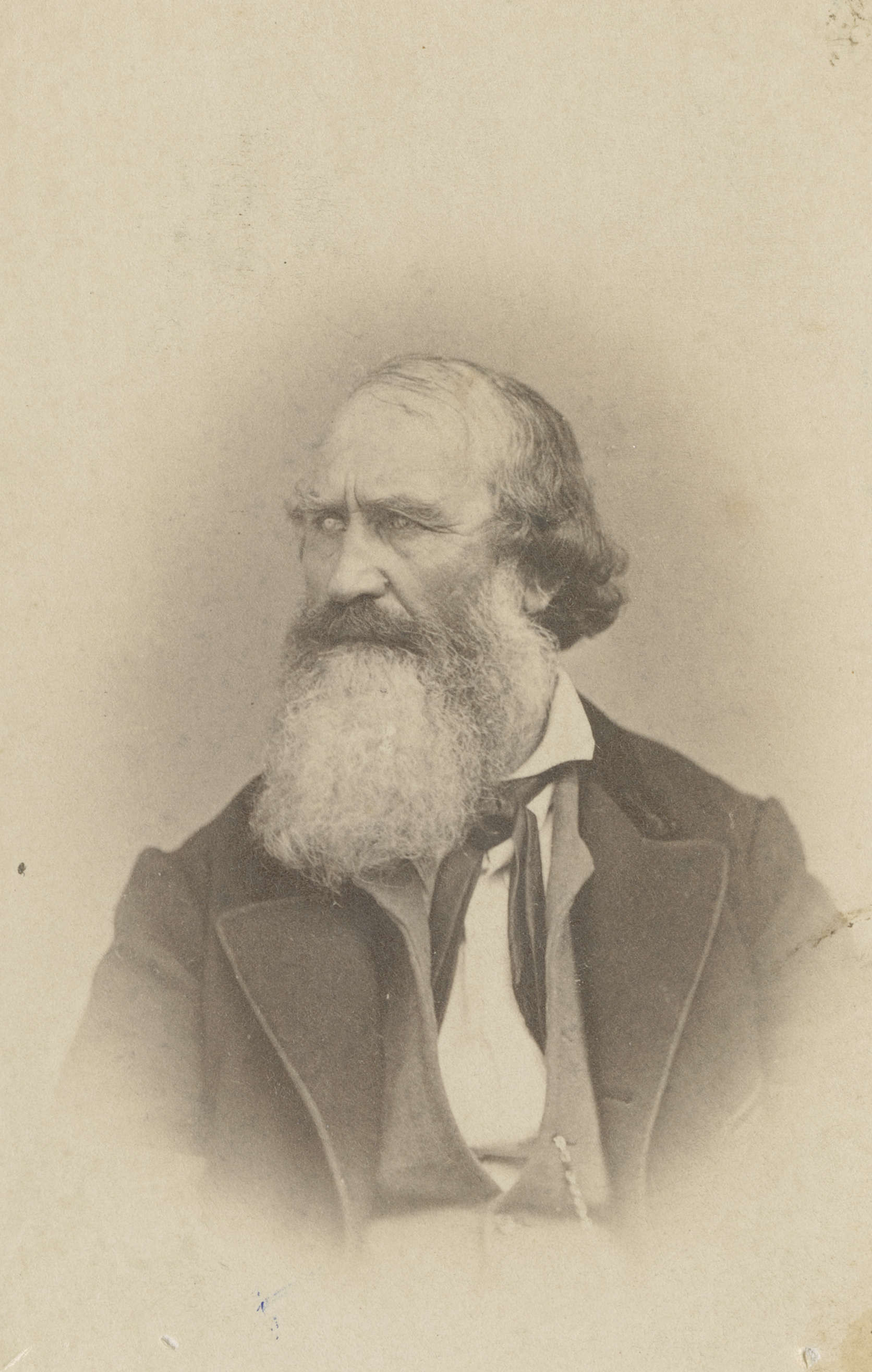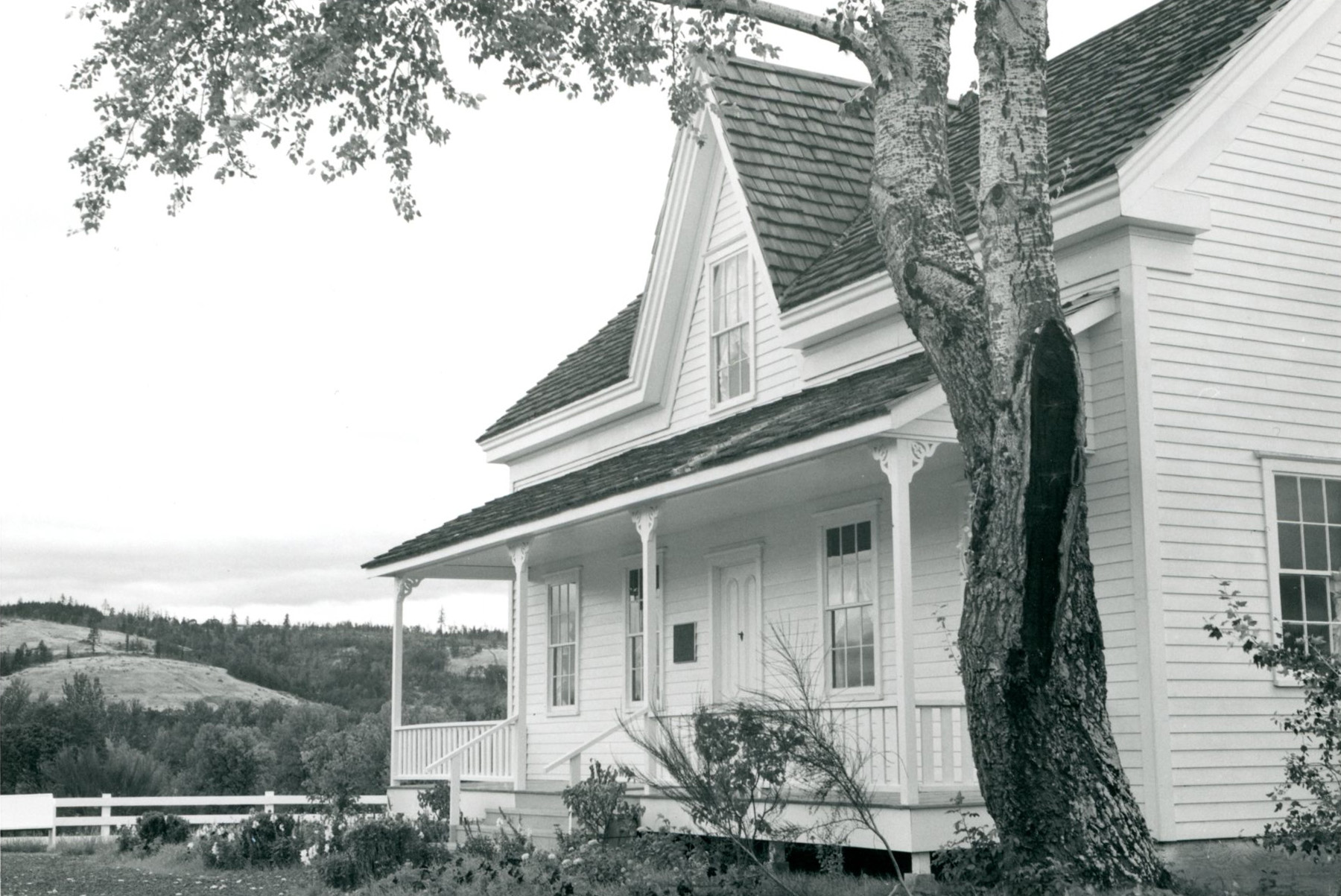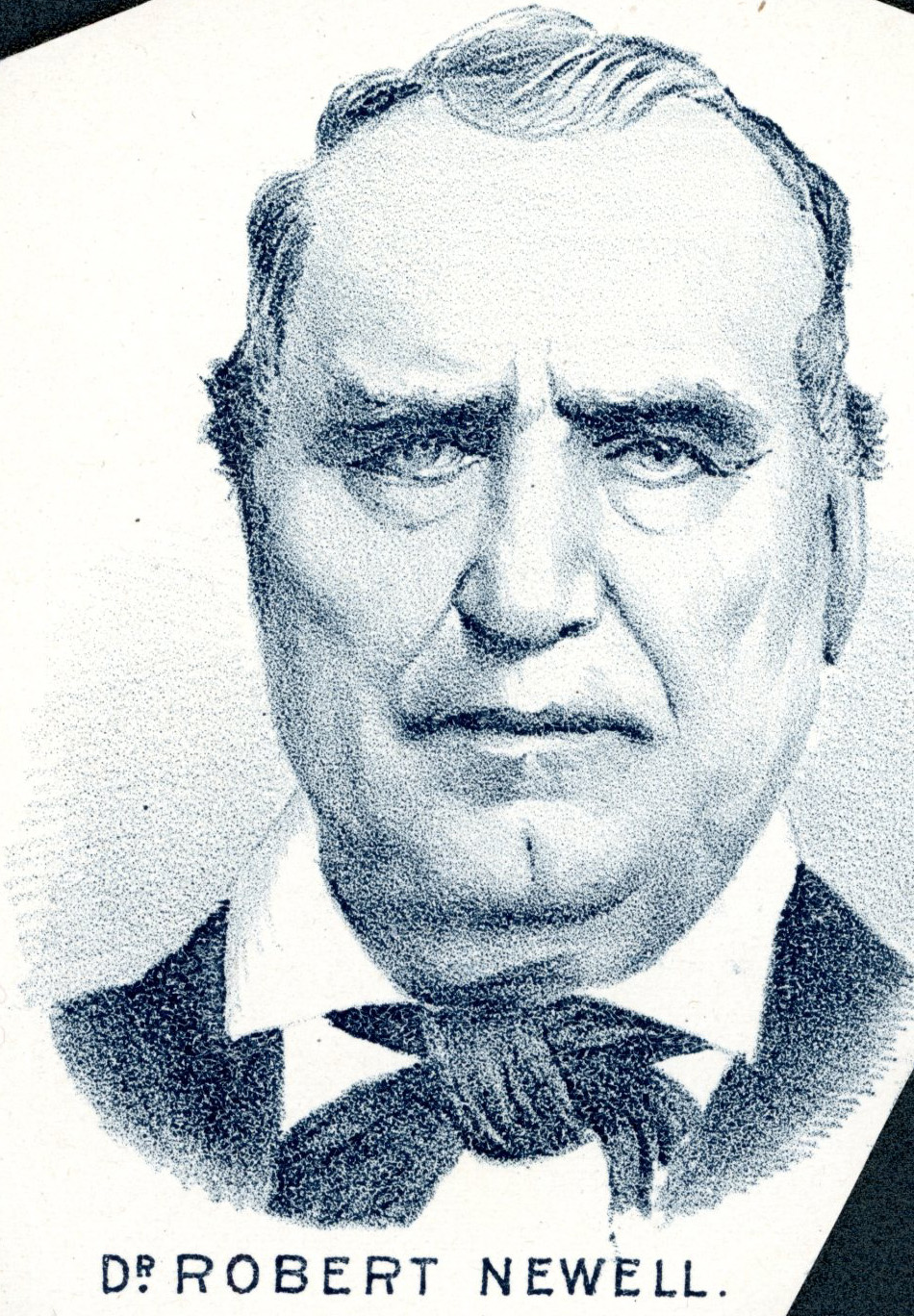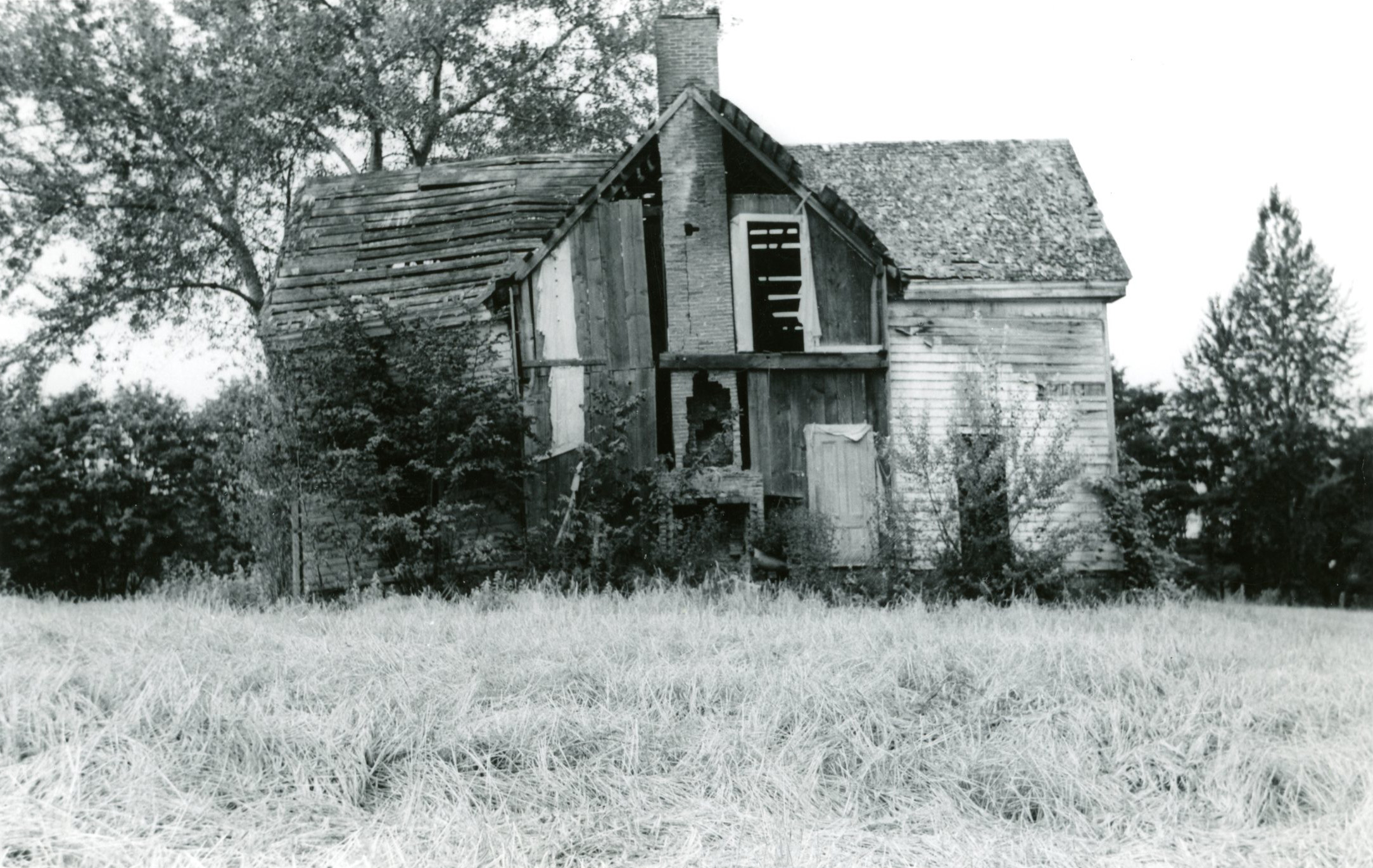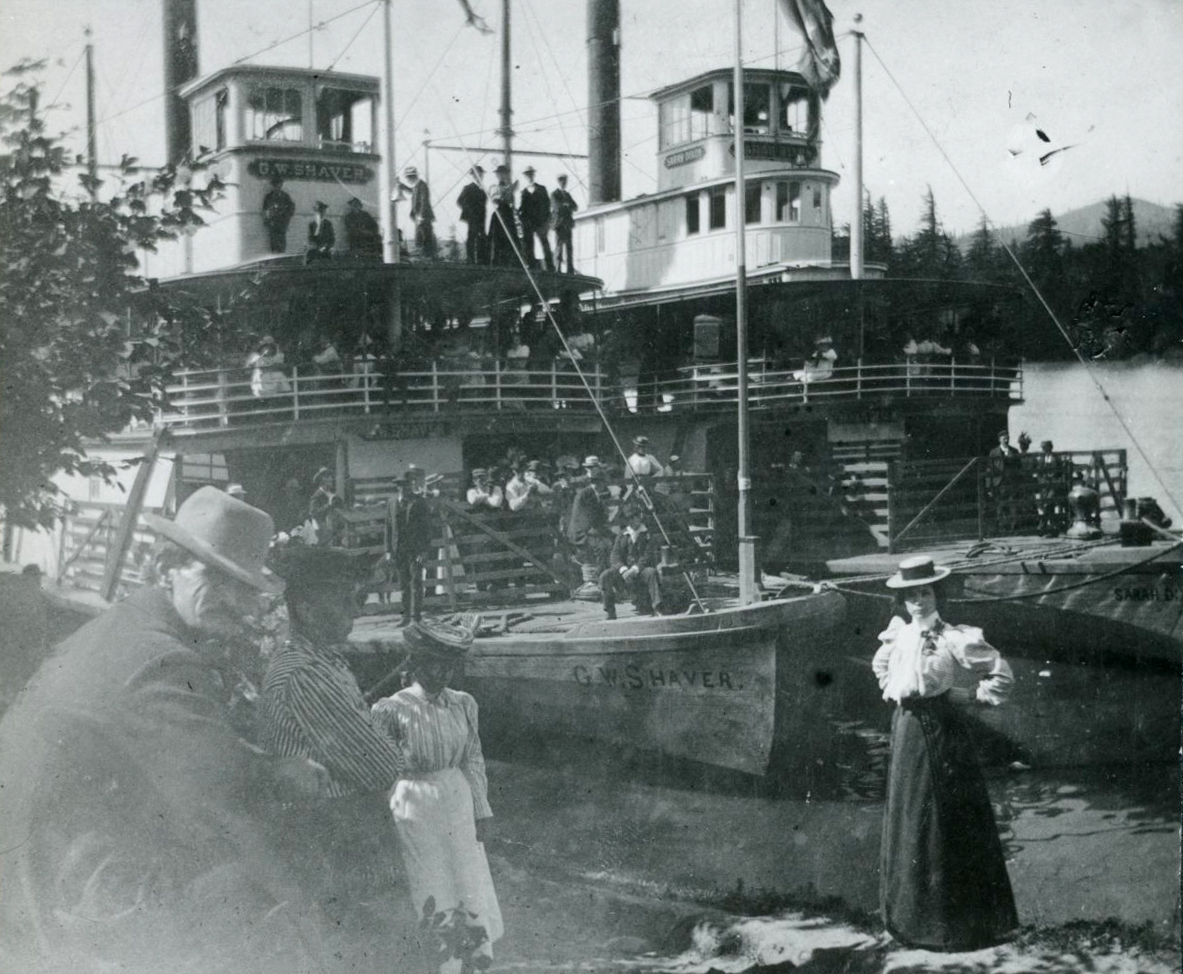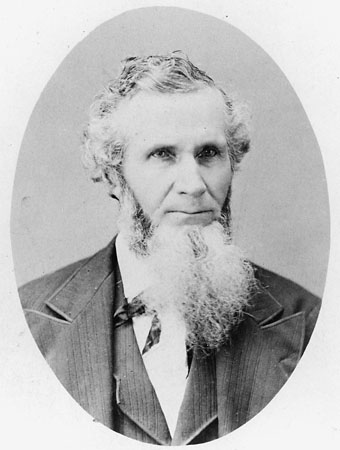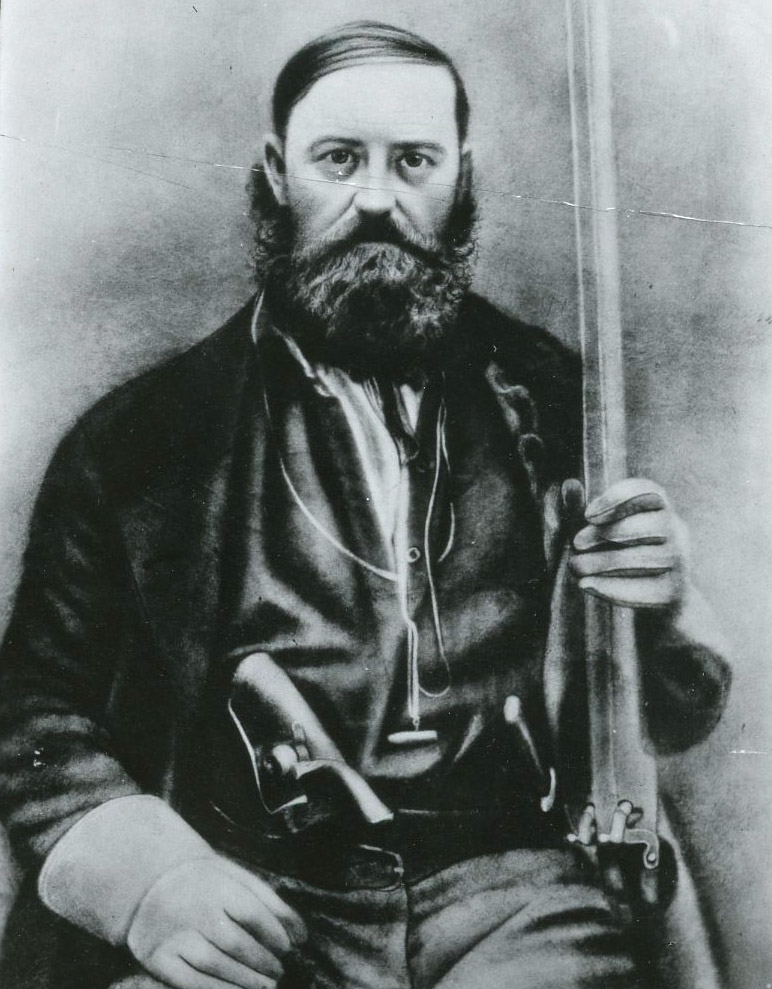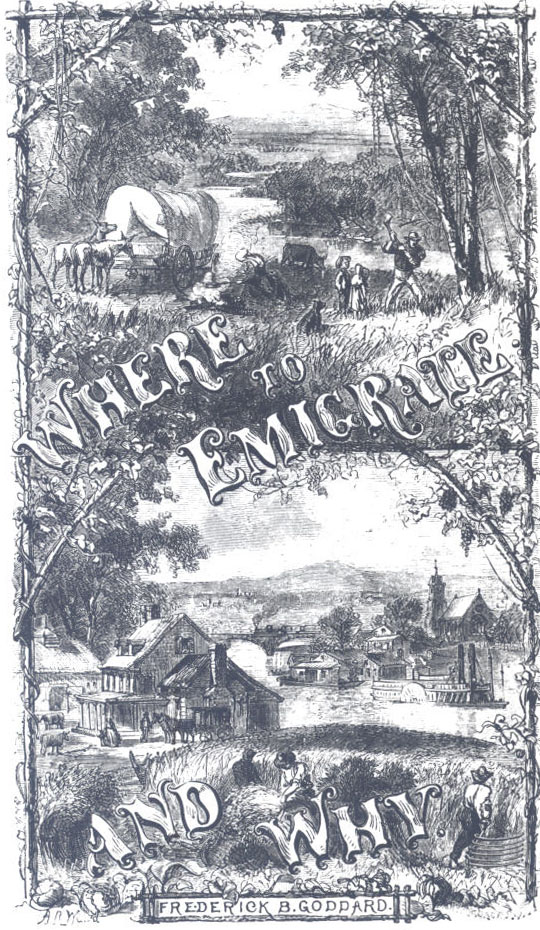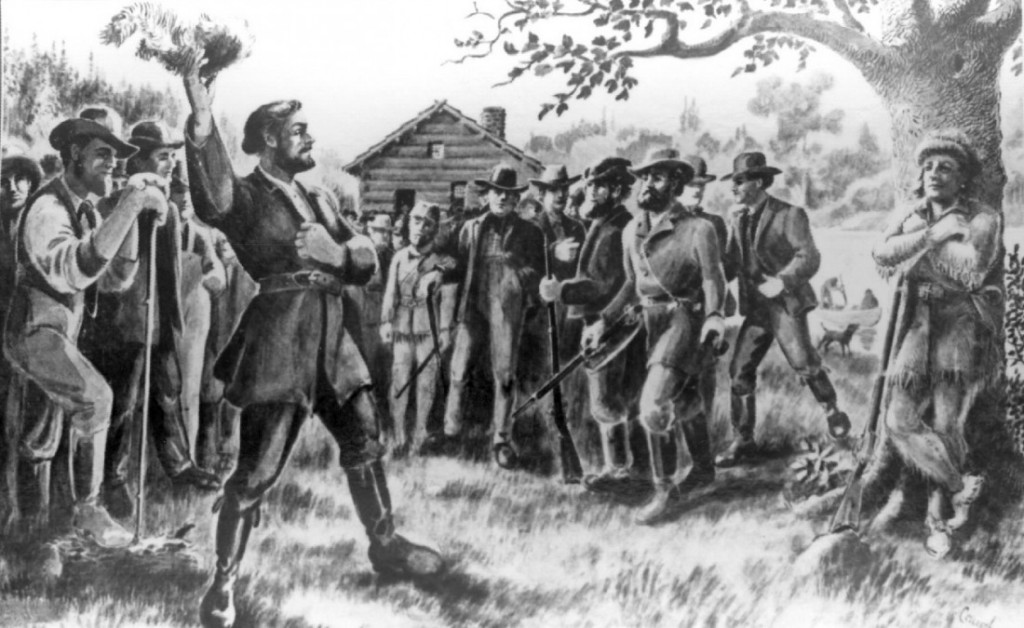In 1840, after more than a decade in the Rocky Mountain fur trade, Robert Newell headed to the Oregon Country. Getting there, he led the first heavy wagons to travel west of Fort Hall on the Oregon Trail. The following year, he took the first overland wagons to the Willamette Valley, where he settled out on the Tualatin Plains. By 1843, he had claimed land at Champoeg and later platted its townsite. He promoted the creation of the Oregon Provisional Government and was Speaker of the House in the 1847 legislature. In 1860, Newell represented Marion County in the state’s first legislative session. Jesse Applegate called him “of undoubted truth and honor, the unquestioned leader and adviser of men of his class.”
Born near Zanesville, Ohio, in 1807, Newell lived some of his youth in Cincinnati before entering the Rocky Mountain fur trade in 1829, in league with William Sublette, David Jackson, and Jedediah Smith. According to associates, he evidenced “fruits of early culture, which he always retained,” and he always carried books in his baggage. One compatriot characterized him as “sound-headed” and observed that he benefited from “prudence and good sense.” They called him “Doc” because he was expert at tending to wounds and nursing men back to health.
In August 1834, Newell married a twelve-year-old Nez Perce woman called Kitty, with whom he had five children between 1835 and 1843. With close friend Joe Meek, who married Kitty’s sister, together with William Craig, Caleb Wilkins, and John Garrison, he left for Oregon in the fall of 1840. By 1843, when Oregon emigrants formed a provisional government, Newell was a member of the committee that outlined the executive structure of the new polity.
Newell also took advantage of the government’s liberal land law to claim 640 acres in 1844 along the Willamette River, upriver from present-day Champoeg State Park. In 1853, he and his neighbor, Andre Longtain, registered a town plat for Champoeg. Newell’s portion included thirty-seven 50-by-100-foot lots from his land claim. He served in the legislature and operated a boat service between Champoeg and Oregon City. A founding member of the Pioneer Literary Society in Oregon City, he was a director of the Oregon Printing Association, responsible for the Oregon Spectator, and became Speaker of the House in 1847.
Perhaps his most important service to Oregon came in 1848, when he was chosen one of three peace commissioners—along with Joel Palmer and Henry A. G. Lee—who dissuaded Cayuse headmen from waging a war against whites in the aftermath of the murders of Marcus and Narcissa Whitman and twelve others at Waiilatpu. The commissioners were also instrumental in persuading Nez Perce not to defend the Cayuse murderers. Newell’s familiarity with Plateau tribes and his facility in Nimiiputimptki, the Nez Perce language, made him an effective commissioner. Historian Frances Fuller Victor described him as “a friend to the Indians” who had an “understanding [of] their ideas.” In 1849, he wrote the first federally sponsored report on tribes south of the Columbia River.
Newell left his family in Oregon in 1849 for the California goldfields, returning in 1851 with sufficient gains to invest in a gristmill at Champoeg, where he built a house for his family. In 1856, he led a group of federal scouts during the Yakima War, although he avoided direct participation in the fighting. He was a Democrat before the Civil War and a Union supporter during the conflict.
Newell’s life changed dramatically in 1861. He pursued a gold rush in Idaho, and then a massive December flood swept away much of Champoeg, leaving it “as bare as a sand beach” and wiping him out financially. In Idaho, he renewed friendships with Nez Perce families and decided to relocate his family. At Fort Lapwai, he secured work as an interpreter for the federal forces and was instrumental in the negotiations that resulted in a new treaty with the Nez Perce in 1863. In recognition of his effort, the treaty included a gift from the Nez Perce of a sizable plot in present-day Lewiston, Idaho. Newell went to Washington, DC, in 1868 with five Nez Perce headmen—the first Nez Perce delegation to the nation’s capital—for meetings with President Andrew Johnson and other officials. He was named Indian Agent at Lapwai the following year.
Kitty Newell died in Champoeg in December 1845. Within a year, Robert Newell married Rebecca Newman, who became mother to the eleven Newell children. She died in 1867. Newell married Jane Ward in June 1869.
Robert Newell died from a heart attack in November 1869. In his memory, the U.S. Navy named a Liberty Ship launched from the Oregon Shipyards the USS Robert Newell. Nellie Pipes, librarian at the Oregon Historical Society, christened the ship on May 2, 1943. In 1959, the Daughters of the American Revolution of Oregon restored Newell’s 1852 house at Champoeg.
-
![]()
-
![]()
Robert Newell house, after restoration, 1959.
Oregon Historical Society Research Library, Orhi697, photo file 799
-
![]()
Sketch of Robert Newell.
Oregon Historical Society Research Library, bb006874, photo file 799
-
![]()
Robert Newell house, before restoration.
Oregon Historical Society Research Library, Orhi79099, photo file 799
Related Entries
-
![Champoeg]()
Champoeg
The town of Champoeg had a brief but memorable life. Instigated by geog…
-
![Joel Palmer (1810-1881)]()
Joel Palmer (1810-1881)
Joel Palmer, who first saw the Oregon Country from a wagon in 1845, spe…
-
![Joseph L. Meek (1810–1875)]()
Joseph L. Meek (1810–1875)
Joseph L. Meek, a mountain man, storyteller, and public personality, pl…
-
![Oregon Trail]()
Oregon Trail
Introduction In popular culture, the Oregon Trail is perhaps the most …
-
![Provisional Government]()
Provisional Government
The Provisional Government, created in May-July 1843, was the first gov…
-
![Whitman Murders]()
Whitman Murders
The 1847 murders of frontier missionaries Marcus and Narcissa Whitman n…
Related Historical Records
Map This on the Oregon History WayFinder
The Oregon History Wayfinder is an interactive map that identifies significant places, people, and events in Oregon history.
Further Reading
Elliott, T.C. “’Doctor’ Robert Newell, Mountain Man.” Washington Historical Quarterly (July 1927): 185.
Johansen, Dorothy, ed. Robert Newell’s Memoranda. Portland, Ore.: Reed College Champoeg Press, 1959.
Hussey, John A. Champoeg: Place of Transition, A Disputed History. Portland: Oregon Historical Society, 1967.
Victor, Frances Fuller. Early Indian Wars of Oregon. Salem, Ore.: F. C. Baker, 1894.
Corning, Howard McKinley. Willamette Landings. Portland: Oregon Historical Society, 1947.
Josephy, Alvin M., Jr. The Nez Perce Indians and the Opening of the Northwest. New Haven, Conn.: Yale University Press, 1965.



